5-7/4/2017. I finally arrived in La Paz. The first few days in Bolivia were not easy. Few here accepted credit cards. Their ATMs did not take my China and Malaysian withdrawal cards. My dwindling US dollars were depleting alarmingly fast. I was nearly forced to be homeless on the streets but saved by good old fashion belt-tightening. Despite the advice to “never leave home without it”, cash is still king in many places.
Taxis in many of the cities still did not use a meter. Not speaking Spanish here sure made it easier to be taken for a ride. So negotiating for a fair price before a ride is out of the question. In one of the cities, I gave the driver a big local currency bill after the ride, expecting the change. Despite my protestations, he confiscated it as a generous tip. Some parts of Latin America were just a little like the old wild, but I always like my travel that way, a little spicy.
5-7/4/2017 – 终于到了拉巴斯。在玻利维亚短短几两三天真不容易。接受信用卡商家较少,又找不到银联取现。后备的马来卡也给他们的取款机难倒,这里只用四位(如欧洲) 数字密码,而我们常用六位,差点就风餐露宿了。这拉美就跟别人不一样。很多城市,包括首都的士都不打表,不会西语怎样出行,只能指手画脚, 不然就束手任宰了。
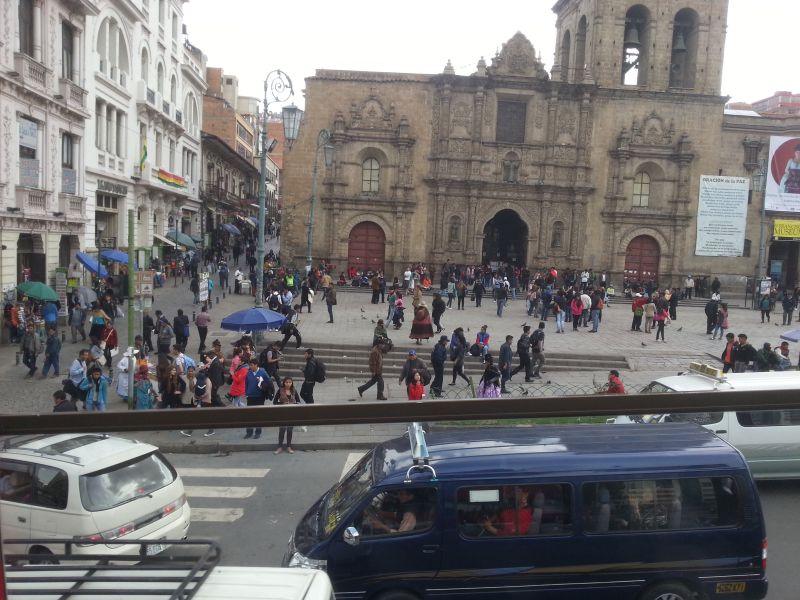
Basilica San Francisco 圣弗朗斯西斯科教堂 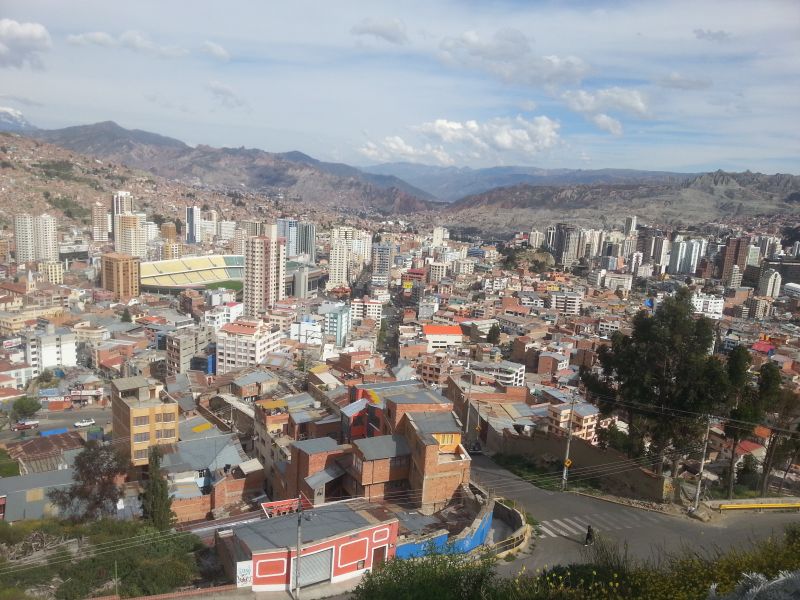
La Paz 拉巴斯 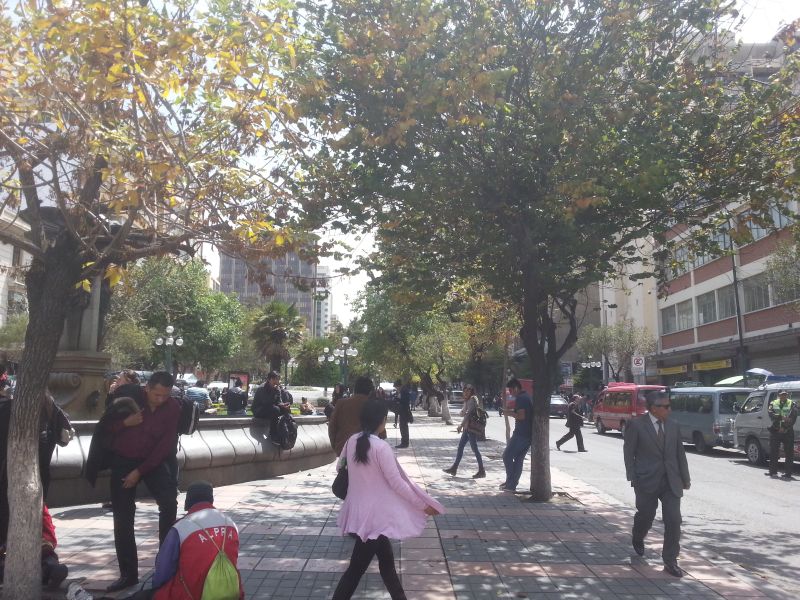
La Paz’s streets 拉巴斯步行街 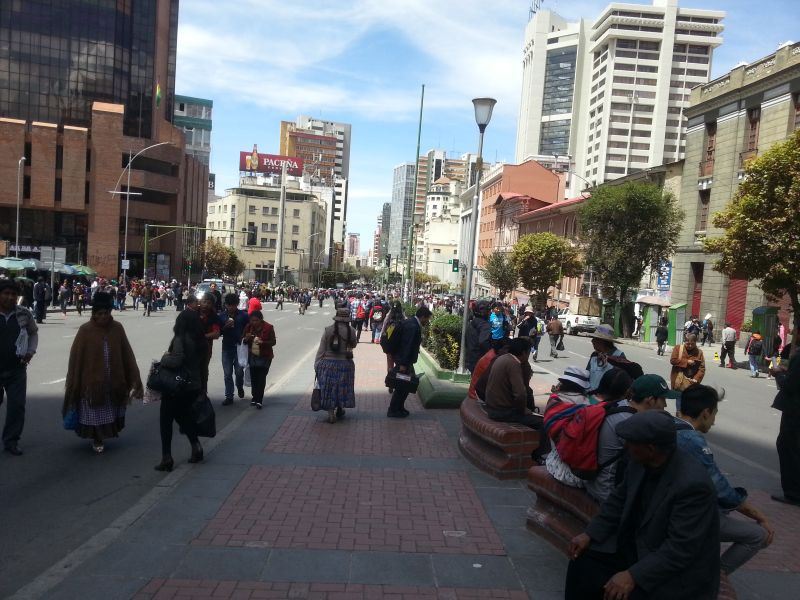
La Paz’s streets 拉巴斯步行街 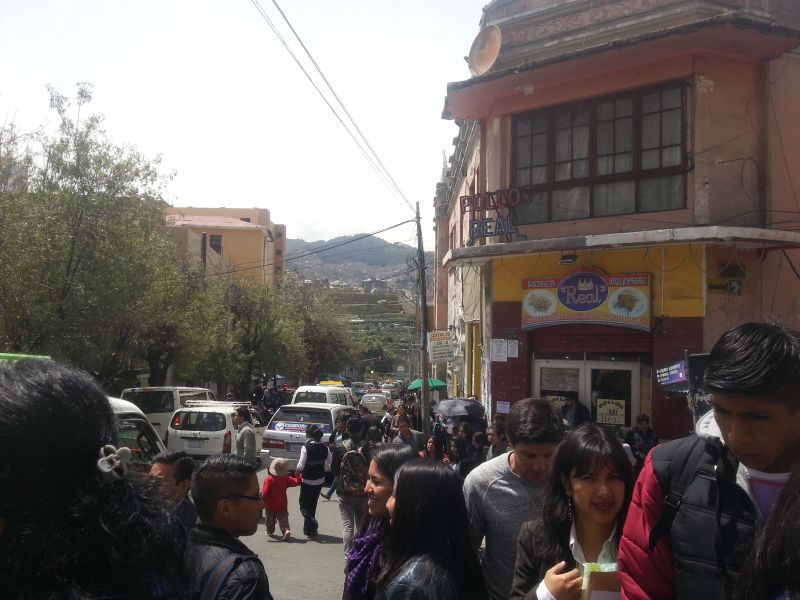
The streets of La Paz 拉巴斯街景 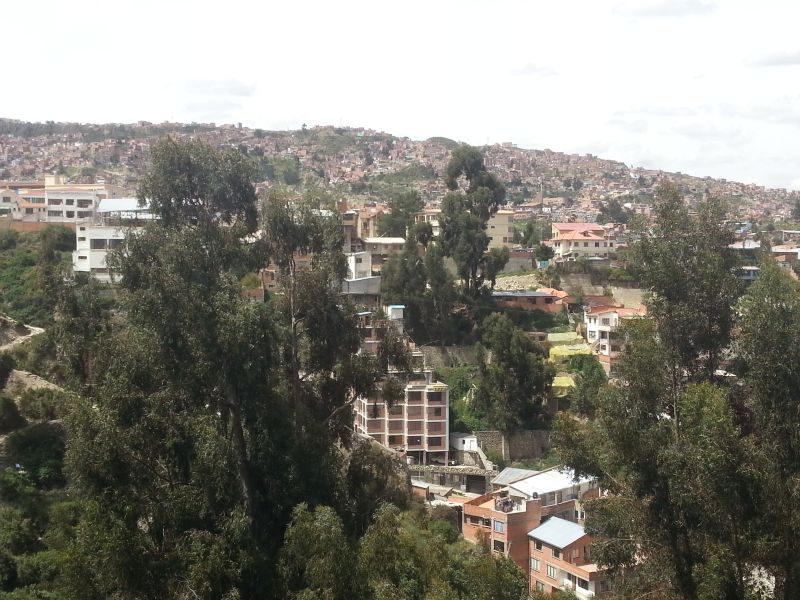
La Paz 拉巴斯 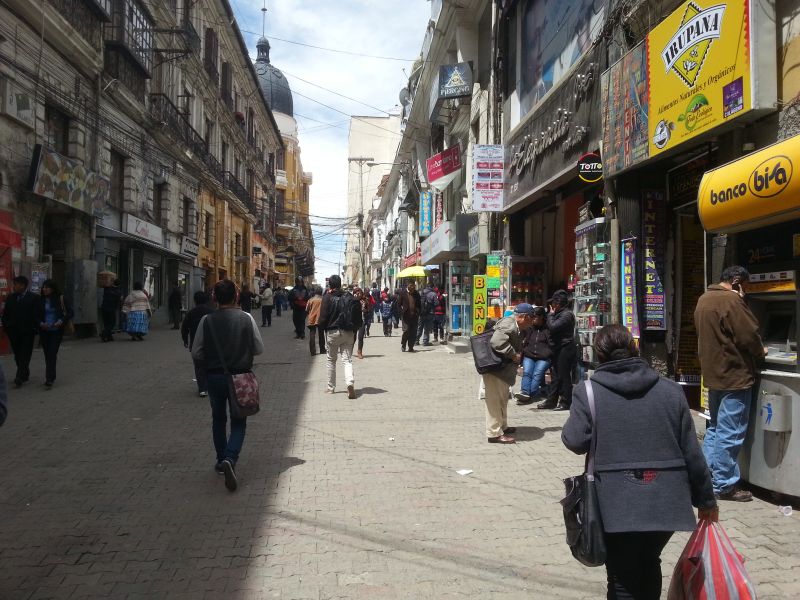
La Paz pedestrian streets 拉巴斯步行街
5-7/4/2017. When I first arrived in Shanghai more than 20 years ago, I remembered thick bundles of power cables that crisscrossed overhead, from one house to the next. That was nothing compared to what I saw today. I toured La Paz on a double-decker bus, and as I sat on the upper deck of an open-top double-decker bus, the power cables brushed my thinning hair. It could have taken my wig with it, if I wore one, or if I had stood, my head. No laughing matter, indeed. They dangled so low I could actually grab hold of them. I think it is deliberate. They are tired of asking passengers on the upper deck to sit down. It is an effective way of telling tourists on the bus to sit down or be hung. A close shave. I like it.
二十多年前刚到上海时我记得大串乱窜电缆,一家窜到另一家,那不算什么。今天坐在双层观光车的顶层,就算坐着,那电线就在我头顶低飞而过,几乎就是梳头的;险过剃头,不是闹着玩的,給这样挂着的电线挂了就冤了。 这些拉美人已经给游客玩够了,干脆就这样不含糊提醒游客乖乖给我坐着。
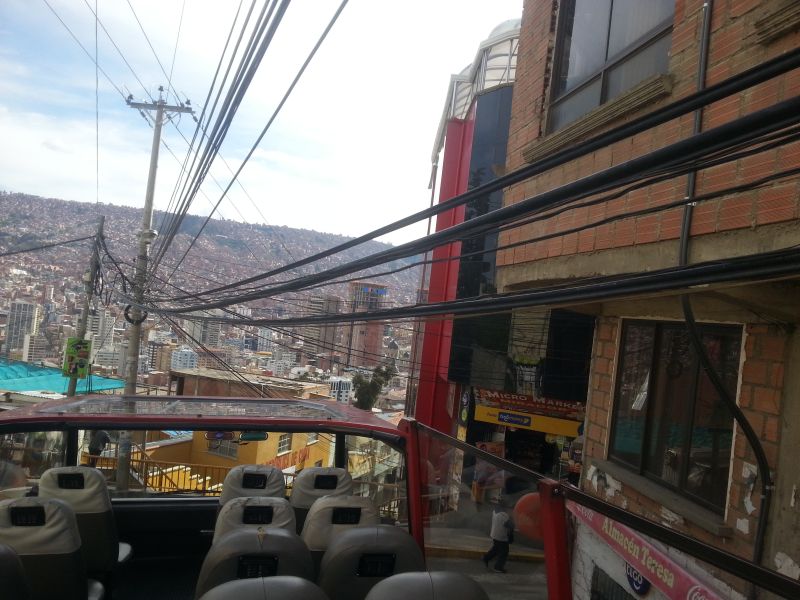
Power cables running from house to house 电缆一家一家窜门 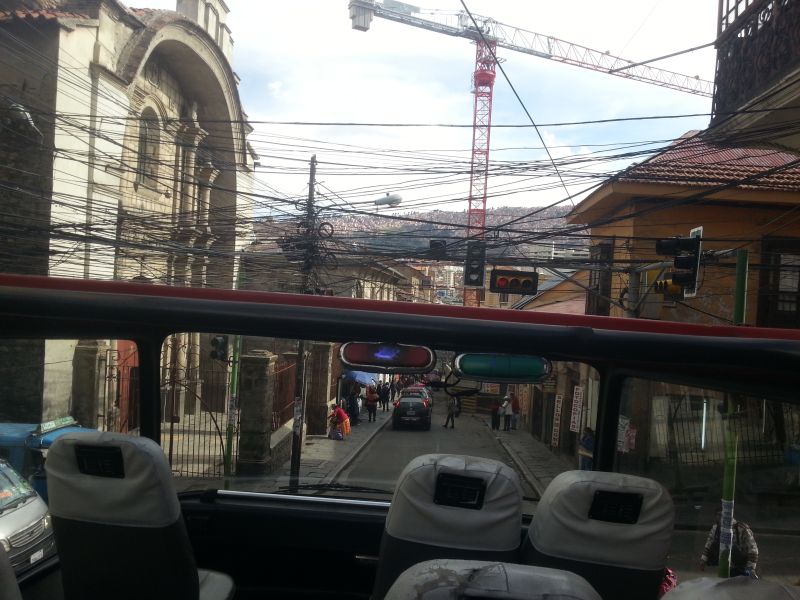
Power cables running overhead across the street 电缆跨马路
This was La Paz at night. Household lights lit up the hills like Christmas trees. But this was no Christmas for the folks here. La Paz’s altitude could range from the lower 3200m to the higher 4000 m. The locals explained the rich generally lived on the lower ground, while the poor lived higher up. Crudely put, the rich get more oxygen at the lower altitudes, while the poor received less. I was told they start by living higher up, and as they work and accumulate more wealth, as they age, they are then in a position to move to the lower ground so they can breathe a little easier. I thought the air was for everyone; our God-given right.
The average life span of Bolivian men is 69. The retirement age for men is 65. Retiring so near death is not a comforting thought.
If they retire poor here, not only is the oxygen thin. They also have to contend with the slopy terrain at higher ground. After a few days here, I already felt like a fish out of water. I felt for them.
拉巴斯的夜晚,山腰上居民灯光把山坡点缀得像圣诞树。但没甚值得庆祝的,当地人解释,有钱的住平地,没钱的住到缺氧山坡。就是说,有钱的氧气就多点。所以年轻没钱时住高处, 老了积蓄点钱后就搬到氧气较多的低地段。这里男人寿命是六十九岁,退休年龄是六十五。一生一世苦干,刚退休没多久没玩就完了。 不只缺氧,老天又在这土地搞了不少斜坡,老了又缺氧又要爬坡,这里的命够糟的。
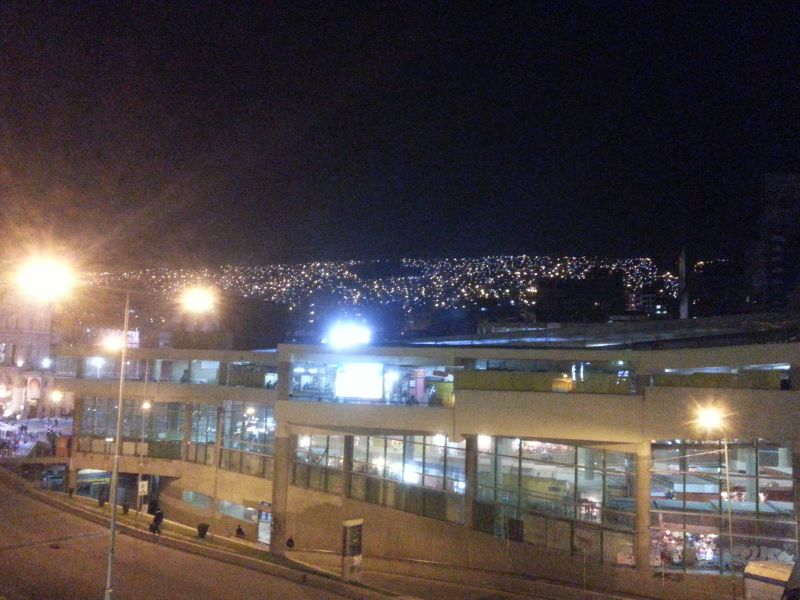
La Paz at night – houses on the hills 拉巴斯夜晚山坡上人间灯火 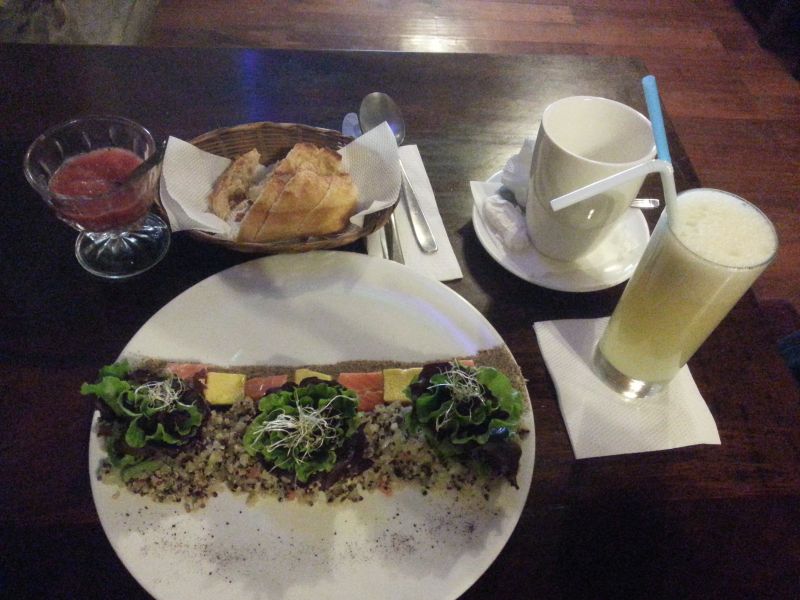
A meal in La Paz 拉巴斯用餐
I could hardly walk up a gentle incline without panting like a dog, with my tongue hanging out. It got worse. It was so bad, I could not walk more than 10 steps without gasping for air. I consulted the doctors a few times. I had two options. To rest for three weeks here to acclimatize before continuing on to explore Bolivia where even more punishing heights awaited. Or head quickly to the low ground, where oxygen was available to all rich and poor. All I wanted was to breathe—a dying fish gasping for air simply needs to be in the water. High altitude sickness can debilitate, as if the heart forgets to breathe. I’m not sure why La Paz was particularly hard to cope with. At 3600 meters, this was not my first high-altitude city and definitely not the highest ground I’d experienced on this trip. Maybe the pollution, as well as the larger population, sucked the oxygen out of the air. My big regret was to have to give the famous Uyuni Salt Flats (Salar de Uyuni) a miss because of its altitude. I will be back, next time with my oxygen tanks.
I boarded a bus that very afternoon to head straight for the coast. It was a 10-hour-long ride, but a good ride, a scenic ride pretty much all the way. After a few hours, snowcapped mountains surrounded us, reminding me we were still at a high altitude.
我在这里几天寸步难行,没走几步就弯着腰气喘吁吁,像只狗吐舌拼命抽气。走几步就,好像心脏忘了跳动,实在难熬,只能按医生方案赶紧到沿海地带。没想到多日在高原, 甚至高达五千米,都勉强克服了,最终却栽在拉巴斯。有可能是这里污染造成氧气更稀释,或人口密度把氧气吸干了。车上该只有我不会西语,糊里糊涂跟着大伙往智利跑。也是一大遗憾未能挺住继续跑玻利维亚,尤其世界闻名的盐湖,世界最大镜子。有朝一日,背上氧气罐,卷土重来。真要命!
事不宜迟,当天下午就踏上大巴赶紧下山,朝海岸奔。十小时路程其实还好,一路风景引人入胜,几小时后,四周几座雪帽山峰芒毕露。近在眼前的雪山提醒车还在高海拔。
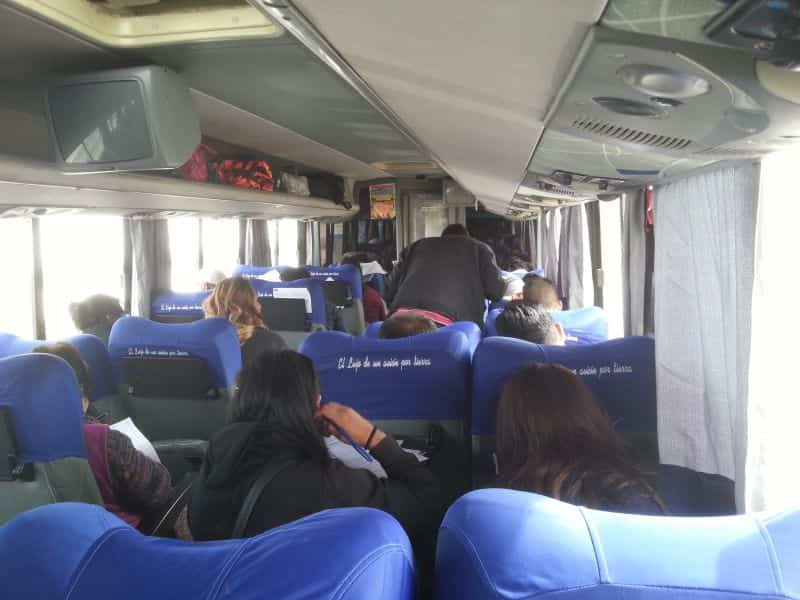
The bus to Chile 到智利大巴 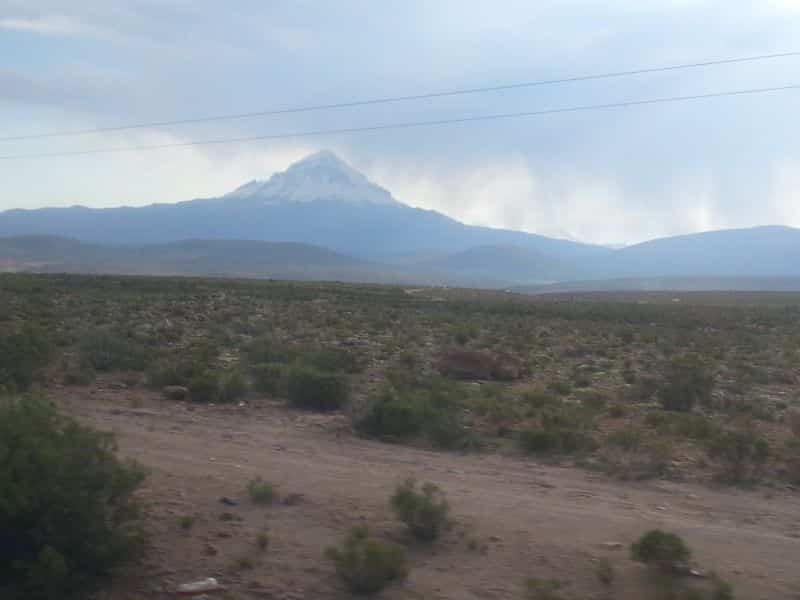
Snow-cap mountains along the way 沿路的雪山 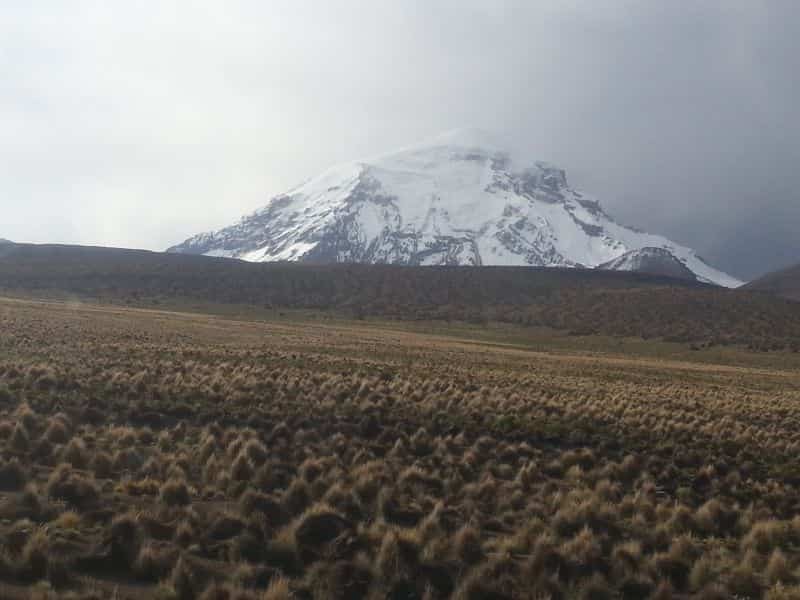
Snow-cap mountains along the way 沿路的雪山 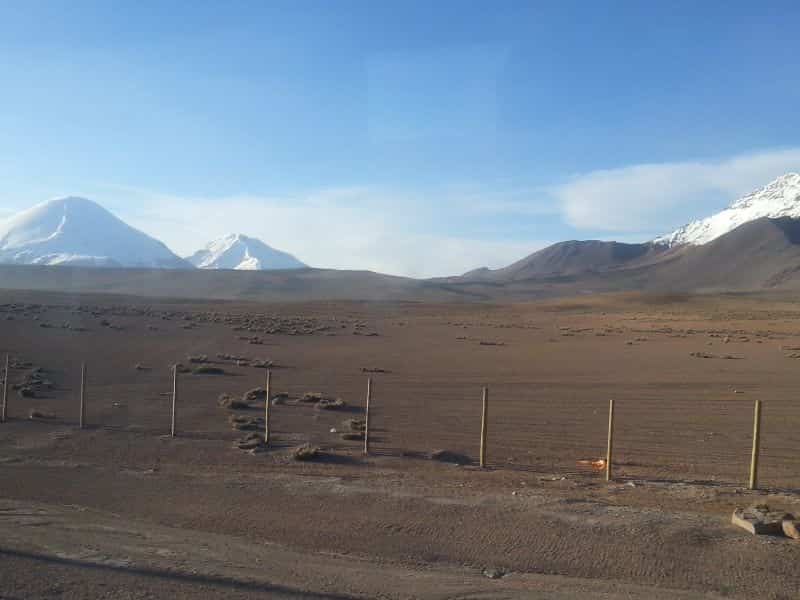
Snow-cap mountains along the way 沿路的雪山 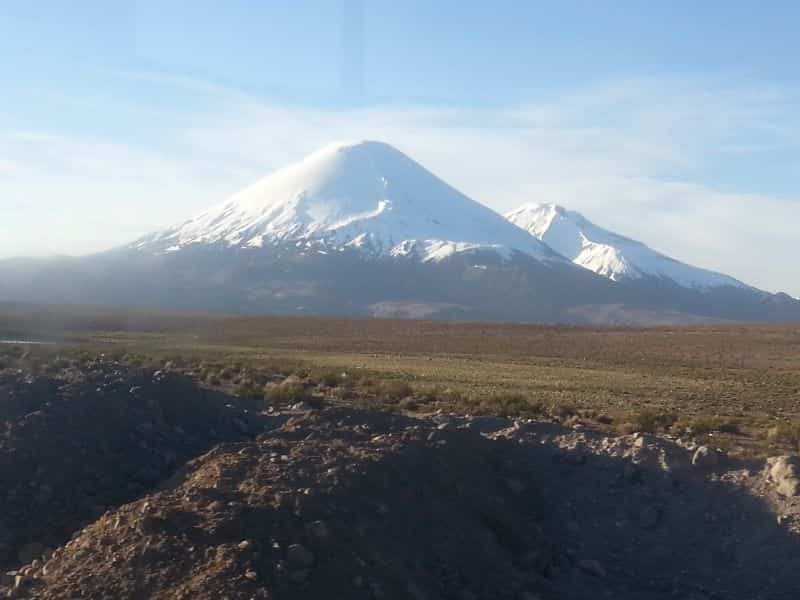
Snow-cap mountains along the way 沿路的雪山 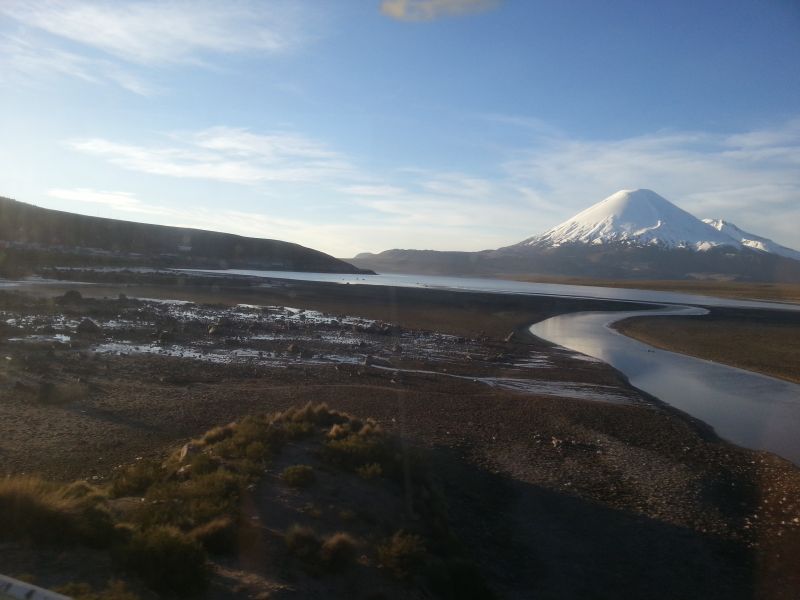
Snow-cap mountains along the way 沿路的雪山
The bus finally arrived at the border between Bolivia and Chile. It had been warm and cozy on the bus, but as soon as I alighted, I was given a full-body search by gusts of cold wind. We had been traveling at the top of the mountains. At this juncture, passengers stopped for home cooking at a humble canteen. I did not join them. I only curled up in a corner, munching my bread, chewing nuts, washed down with plain old mineral water. This had been a spartan journey, the kind that makes a man.
到了玻利维亚和智利边检。车内暖暖的,下车后寒风凛凛,真的感觉很怪,四周平原也遍地短草,没感觉身处山顶,唯一线索就是那雪顶。这旅途真也是贴地气的旅行,虽没书童陪行,一路就啃面包,嚼坚果,矿泉水当酒下。图中旅客在中途小食堂吃饭。这不是个舒服的享受, 是个锻炼大男人的体验。
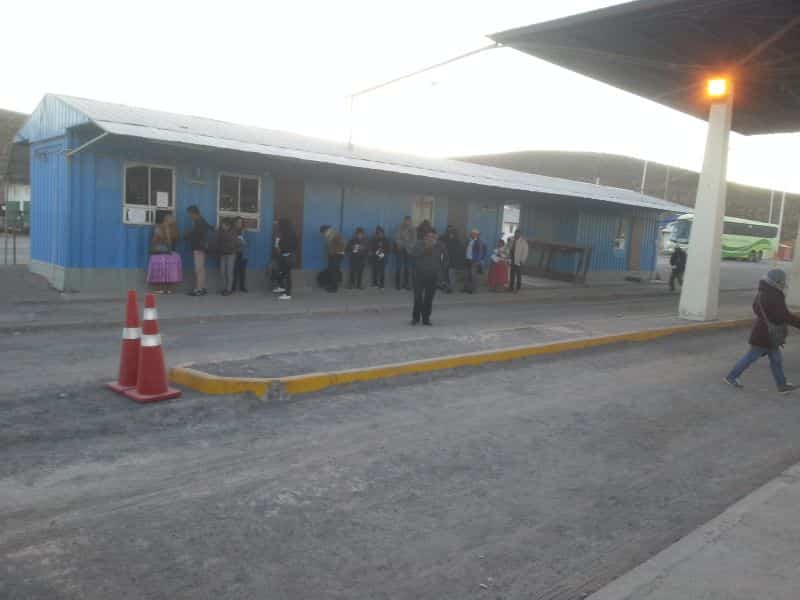
The bus crossing the Bolivia Chile border 大巴在玻利维亚智利边境站 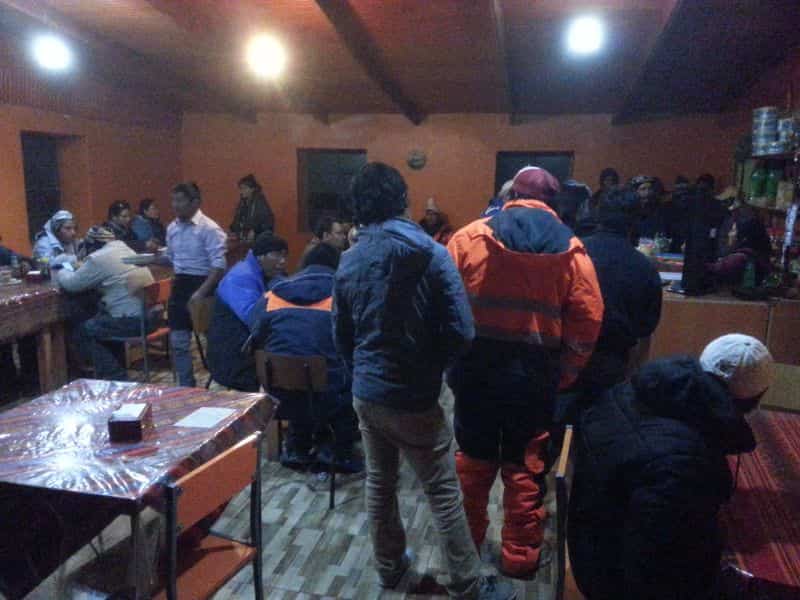
Passengers at the cafe at the border 大巴乘客在边境食堂餐用餐